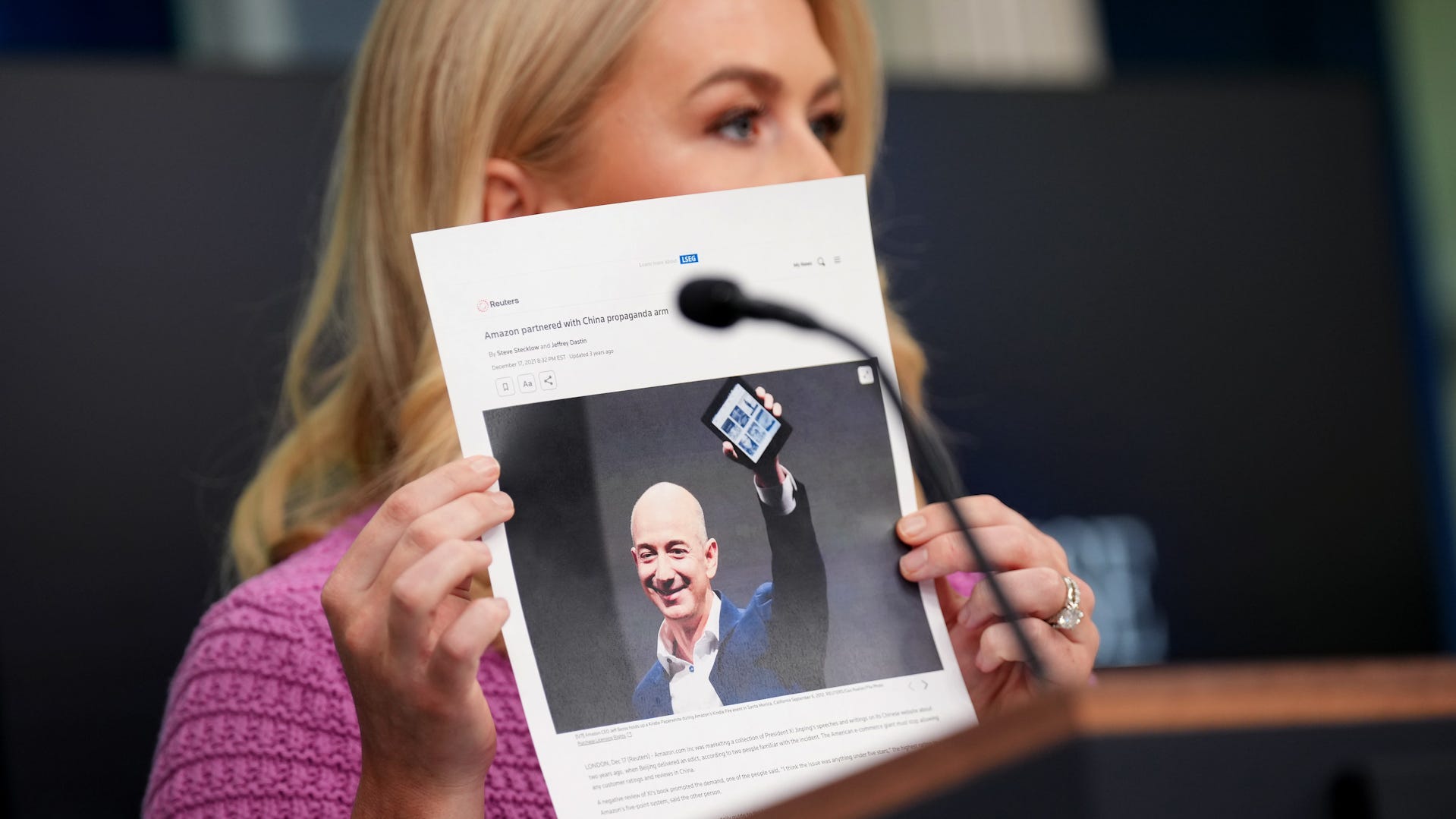Amazon says it won't list tariff costs next to products. But prices have been rising.

Amazon is denying a report that it plans to include the cost of tariffs on its main retail website.
The White House denounced a report from PunchBowl News, a Washington, D.C., subscription news service, that the global retail shopping site would soon display the added costs from wide-ranging tariffs imposed by President Trump. White House press secretary Karoline Leavitt called the plan "a hostile and political act by Amazon."
But Amazon refuted the PunchBowl News report, which cited an unnamed source familiar with Amazon's plans.
“The team that runs our ultra low cost Amazon Haul store considered the idea of listing import charges on certain products," Amazon spokeswoman Rachael Lighty said in statement to Paste BN. "This was never approved and is not going to happen."
Amazon Haul is the e-commerce giant's lower-cost, mobile-centric discount shopping service, which the retailer launched in November 2024.
Prices rising on Amazon since early April
Earlier this month, Amazon CEO Andy Jassy said the trade war between the U.S. and China likely means higher prices for Amazon shoppers.
"We'll have to see how it all plays out. But if you made me guess, you know, I'm guessing that sellers will pass that cost on," Jassy told CNBC's Andrew Ross Sorkin on April 10. "I think they'll try, and I understand why. I mean, depending on which country you're in, you don't have 50% extra margin that you can play with, so I think they'll try and pass the cost on."
Sure enough, in the three weeks since Trump's announced additional tariffs on what he dubbed Liberation Day (April 2), Amazon prices have risen 4.2% higher on 50 products, according to a sample conducted by equity research firm MoffettNathanson Research. Amazon also had a 10% out-of-stock rate on those products on April 25. Walmart and Wayfair had risen prices 2% and 1.3% on those products, respectively; Walmart had a 20% out of stock rate, while Wayfair had 2%, the firm found.
Amazon has a lot at stake in U.S.-China trade relations. The e-commerce platform, as well as other retailers dependent on Chinese-made products, "operate at the center of the tariff storm," MoffettNathanson's Michael Morton and Daniel Whitaker wrote in the analyst note.
Chinese e-commerce sites Shein and Temu have already increased prices due to tariffs.
The tariffs present a "real challenge to any retailer's business," Mark Mahaney, Evercore ISI head of internet research, told CNBC.
Amazon is the dominant online retailer. However, he said, "if these tariffs are going to stay in there for a long term, they’re either going to have to eat price or they’re going to have to lose market share."
To defend its market share, Mahaney expects Amazon to "keep prices where they are now or not allow them to rise as much as competitors'."
About 25% of the non-grocery goods sold by Amazon come from China, investment firm Morgan Stanley estimates, according to Business Insider.
And Amazon has reportedly canceled some orders for products made in China.
This story has been updated with new information.
Contributing: Reuters.
Mike Snider is a reporter on Paste BN’s Trending team. You can follow him on Threads, Bluesky, X and email him at mikegsnider & @mikegsnider.bsky.social & @mikesnider & msnider@usatoday.com
What's everyone talking about? Sign up for our trending newsletter to get the latest news of the day